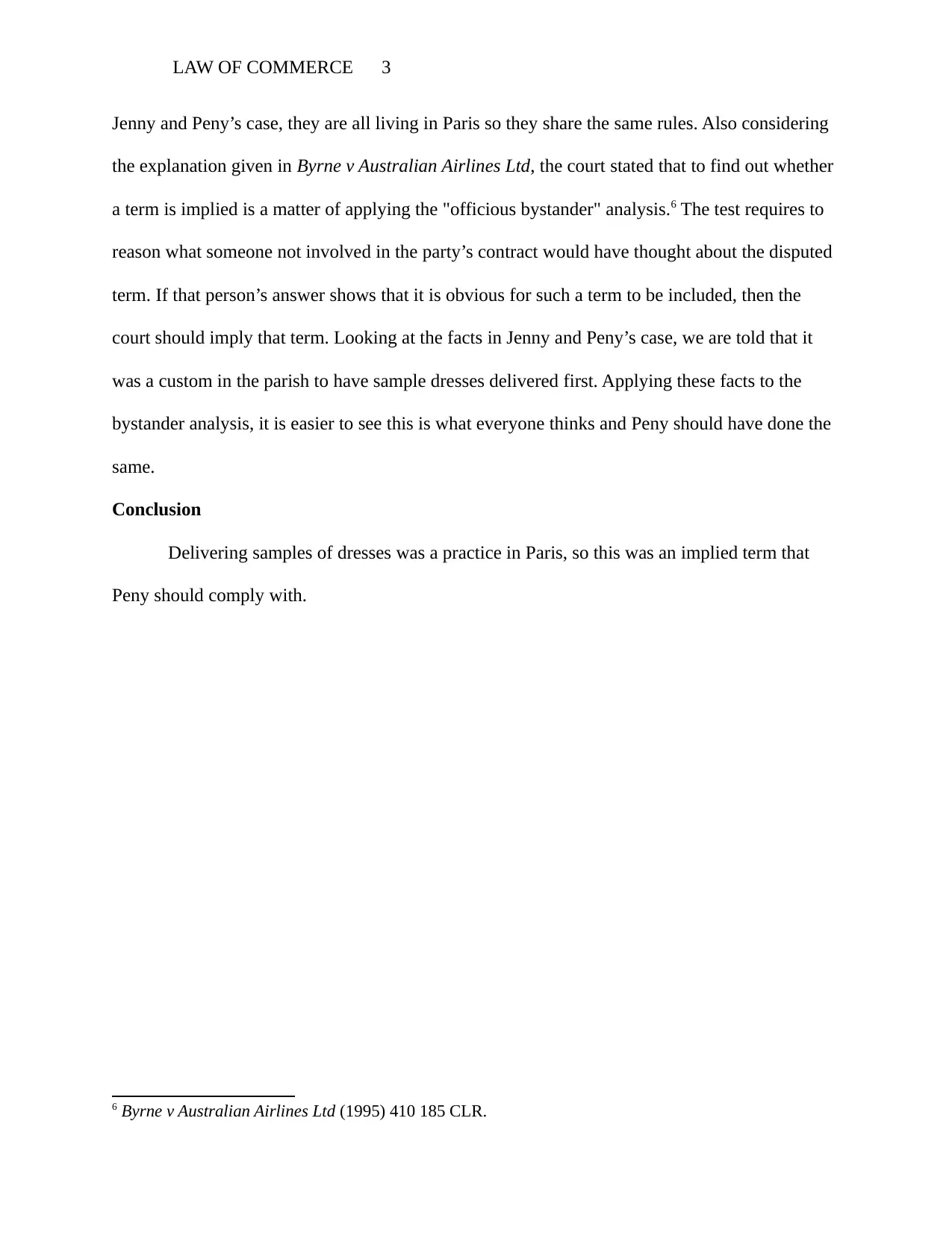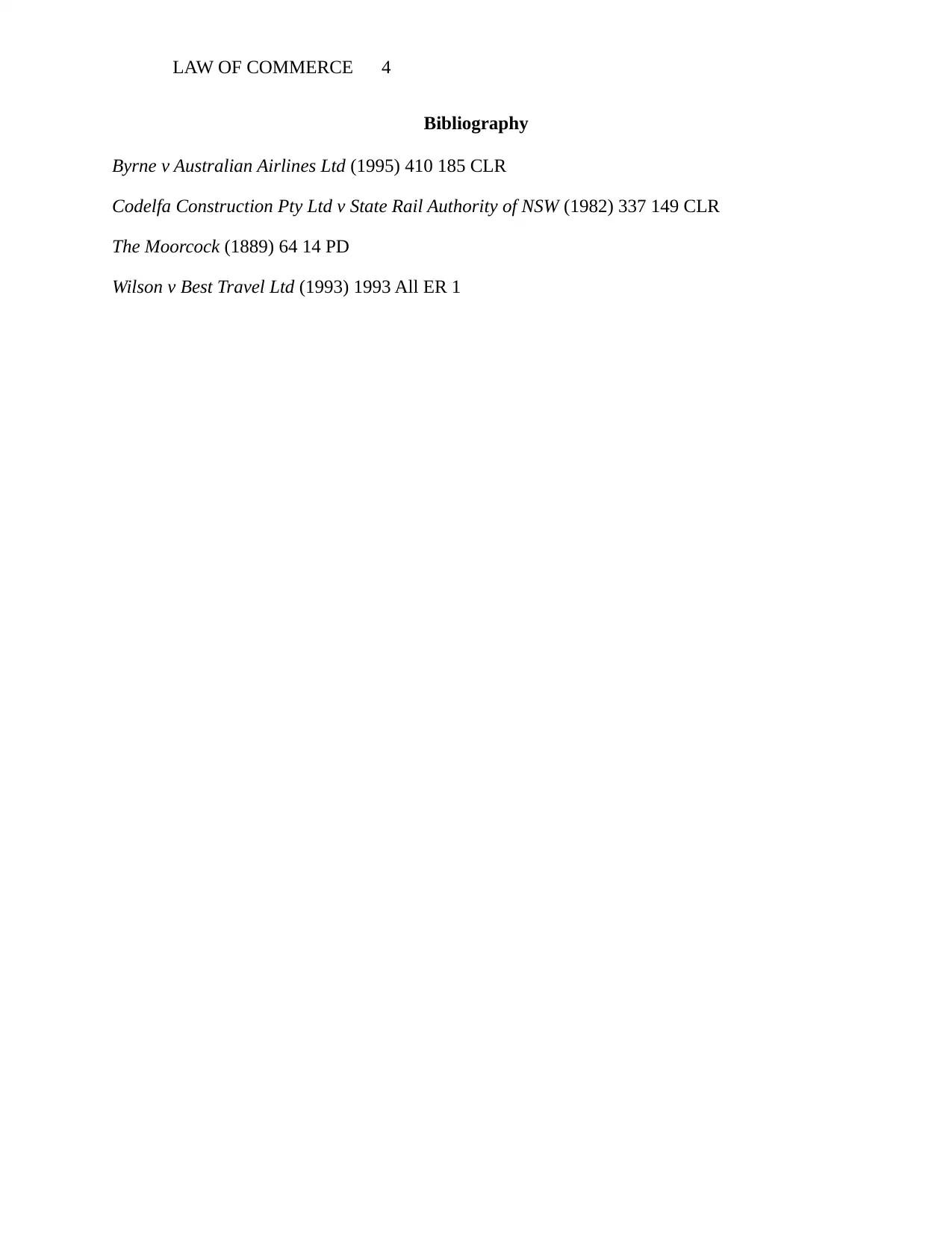University of X: Law of Commerce - Implied Terms Case Study Analysis
VerifiedAdded on 2023/01/17
|4
|631
|48
Case Study
AI Summary
This assignment presents a case study focused on the law of commerce, specifically addressing the concept of implied terms in contracts. The case involves a dispute between Jenny and Peny regarding the non-delivery of sample dresses, which Jenny argues is a customary practice in Paris. The assignment explores the rules governing implied terms, referencing cases such as Codelfa Construction Pty Ltd v State Rail Authority of NSW, and the application of the "officious bystander" analysis from Byrne v Australian Airlines Ltd. The analysis concludes that delivering samples was an implied term Peny should have followed based on the custom in Paris. The document also includes a bibliography of relevant cases, providing a comprehensive overview of the legal principles discussed.
1 out of 4










![[object Object]](/_next/static/media/star-bottom.7253800d.svg)